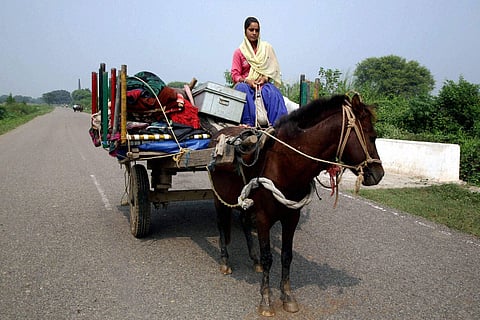

NEW DELHI: A series of inspection at antitoxin manufacturing companies has revealed widespread abuse and neglect of thousands of horses used for producing antitoxins and antivenins, according to a report submitted to the Animal Welfare Board of India.
The inspection was conducted by veterinarians and experts from prominent veterinary colleges and renowned non-governmental organisations, including PETA.
At most of the inspected facilities, the report said that bleeding records indicate that many animals are bled several times a month and have more blood drawn than is permissible according to the CPCSEA (Committee for the Purpose of Control and Supervision of Experiments on Animals) guidelines, said the animal welfare organisation. Their blood is then used to make antitoxins and antivenins that are exported worldwide.
"In facilities across India, frightened, lame, and malnourished equines are left to suffer without proper veterinary care while being used as living blood bags for antitoxin and antivenin producers", says PETA India CEO Poorva Joshipura.
Inspectors observed that many animals suffered from poor nutrition, poor dental care, digestive tract diseases, painful lesions on their legs, and severe abnormalities, and skin diseases such as ringworm were also commonly observed.
“The AWBI immediately submitted the inspection reports to the CPCSEA, but rather than taking action to help these animals, the CPCSEA removed the AWBI chair and vice-chair from the committee, leaving the group with no representation,” said the NGO.
PETA has urged the Ministry of Environment, Forest and Climate Change to act immediately to shut down these cruel facilities and ensure the equines they have exploited receive the veterinary and rehabilitative care they need.